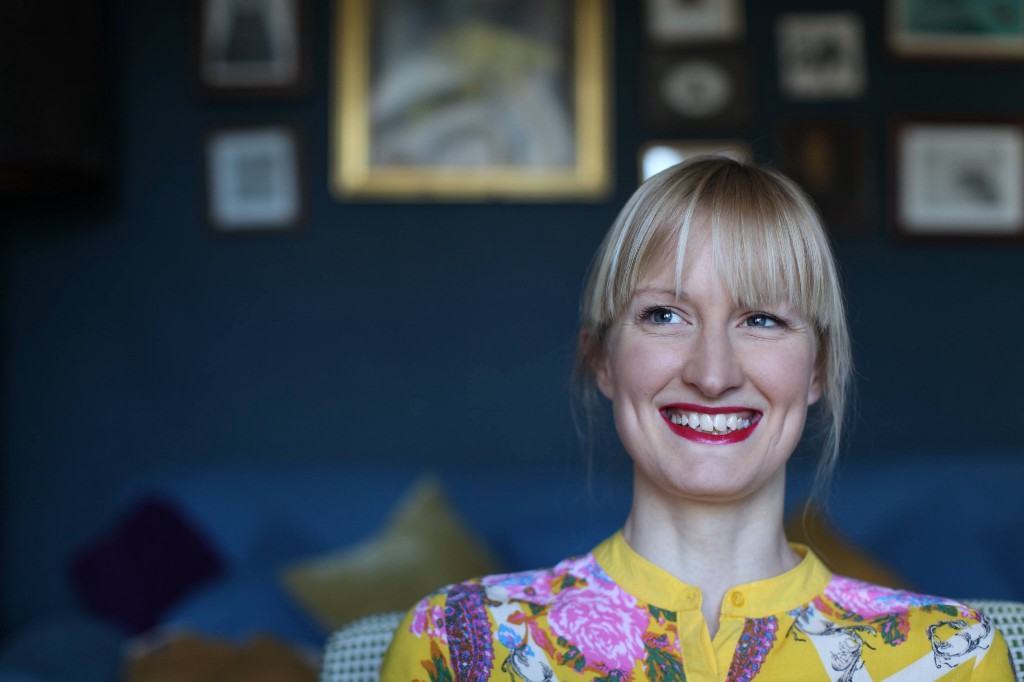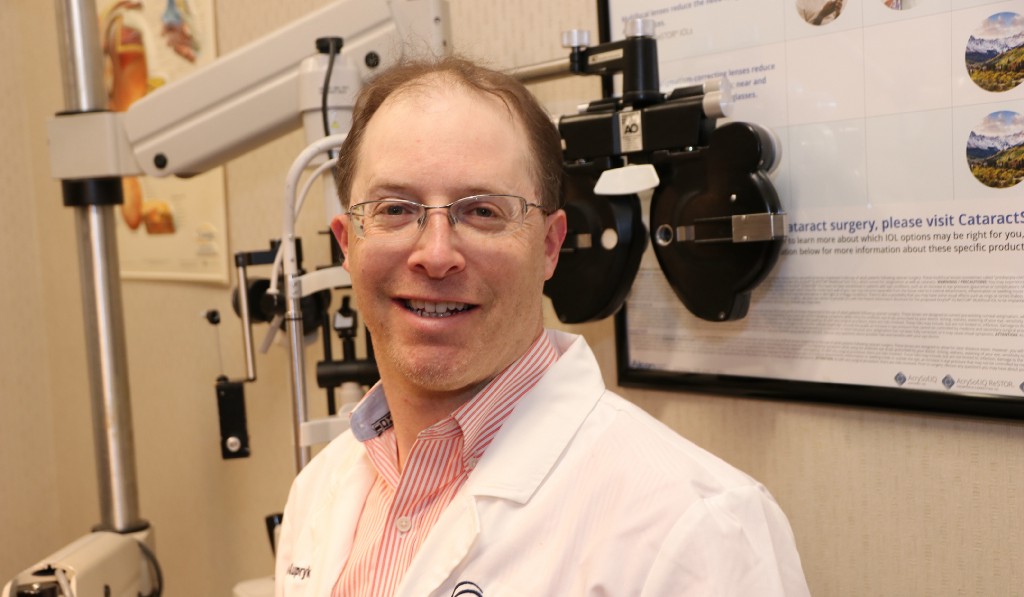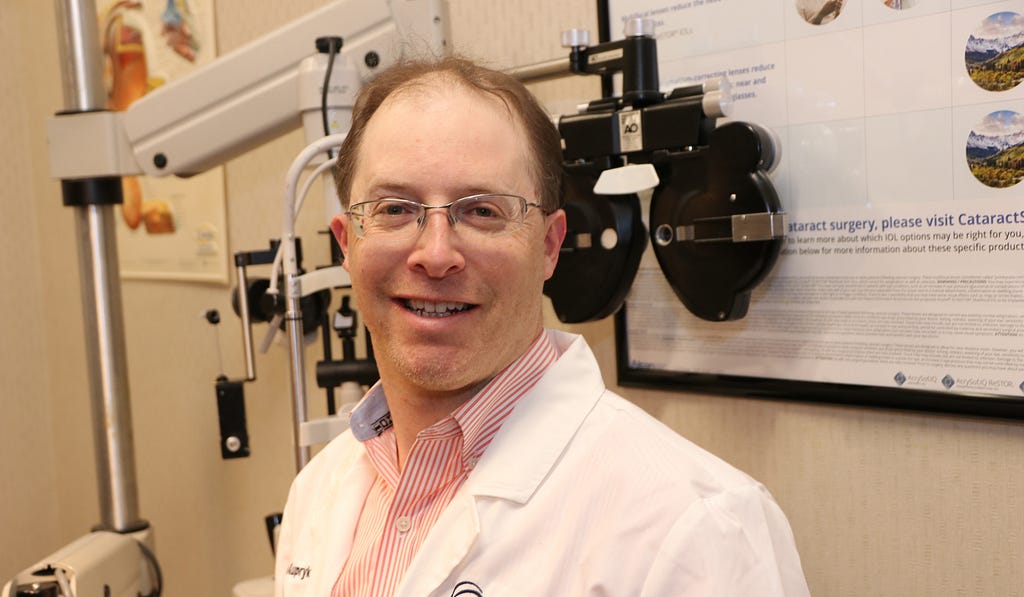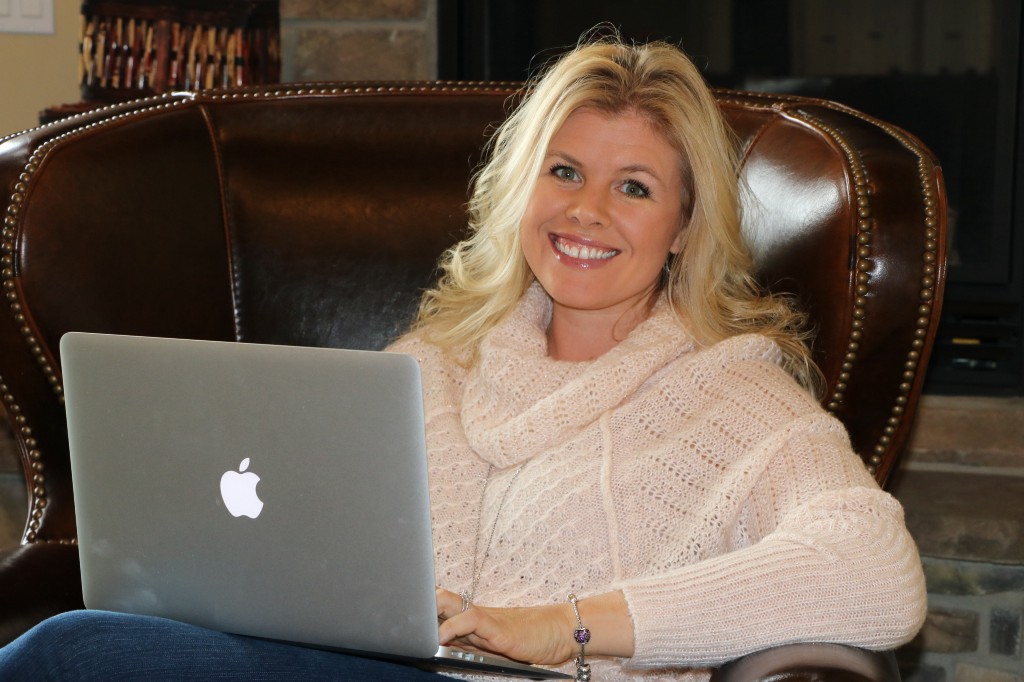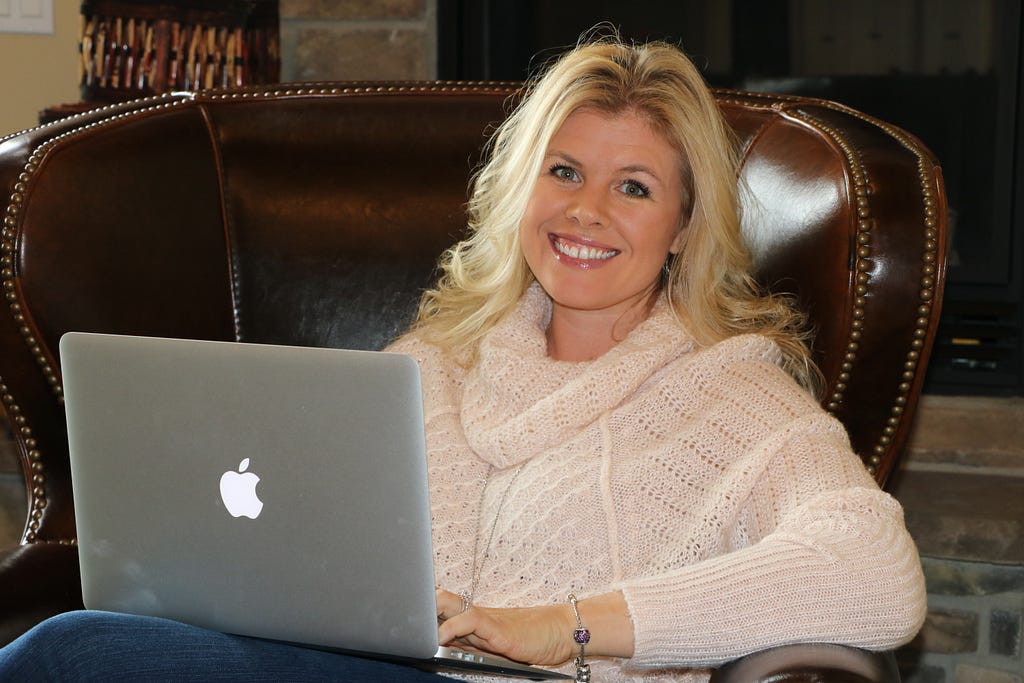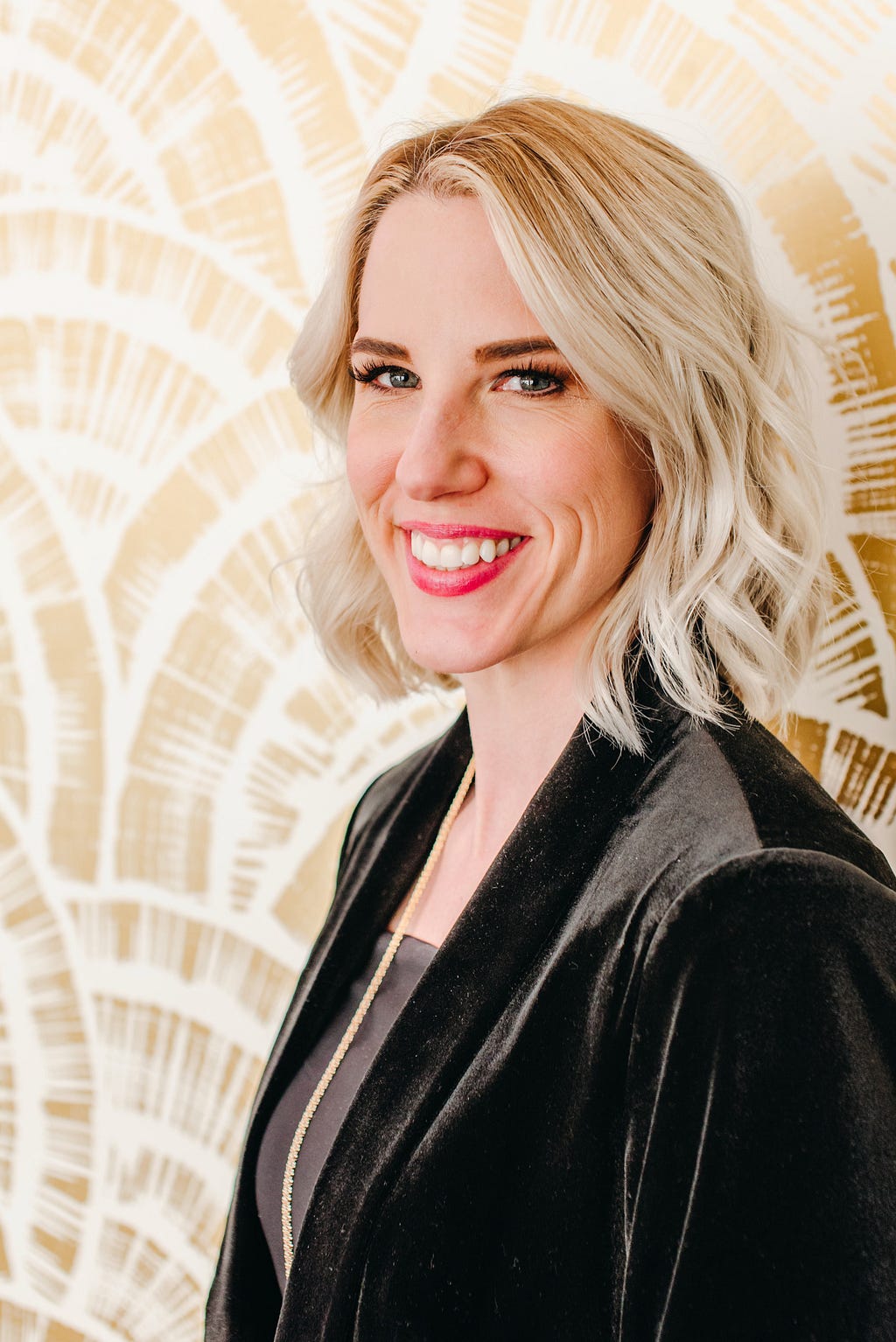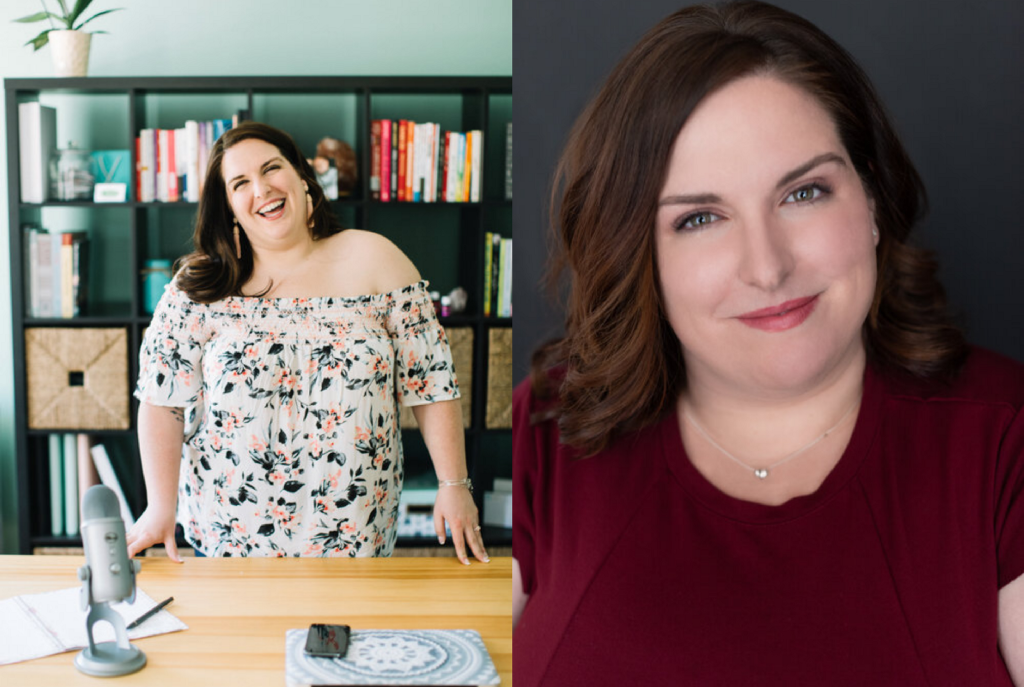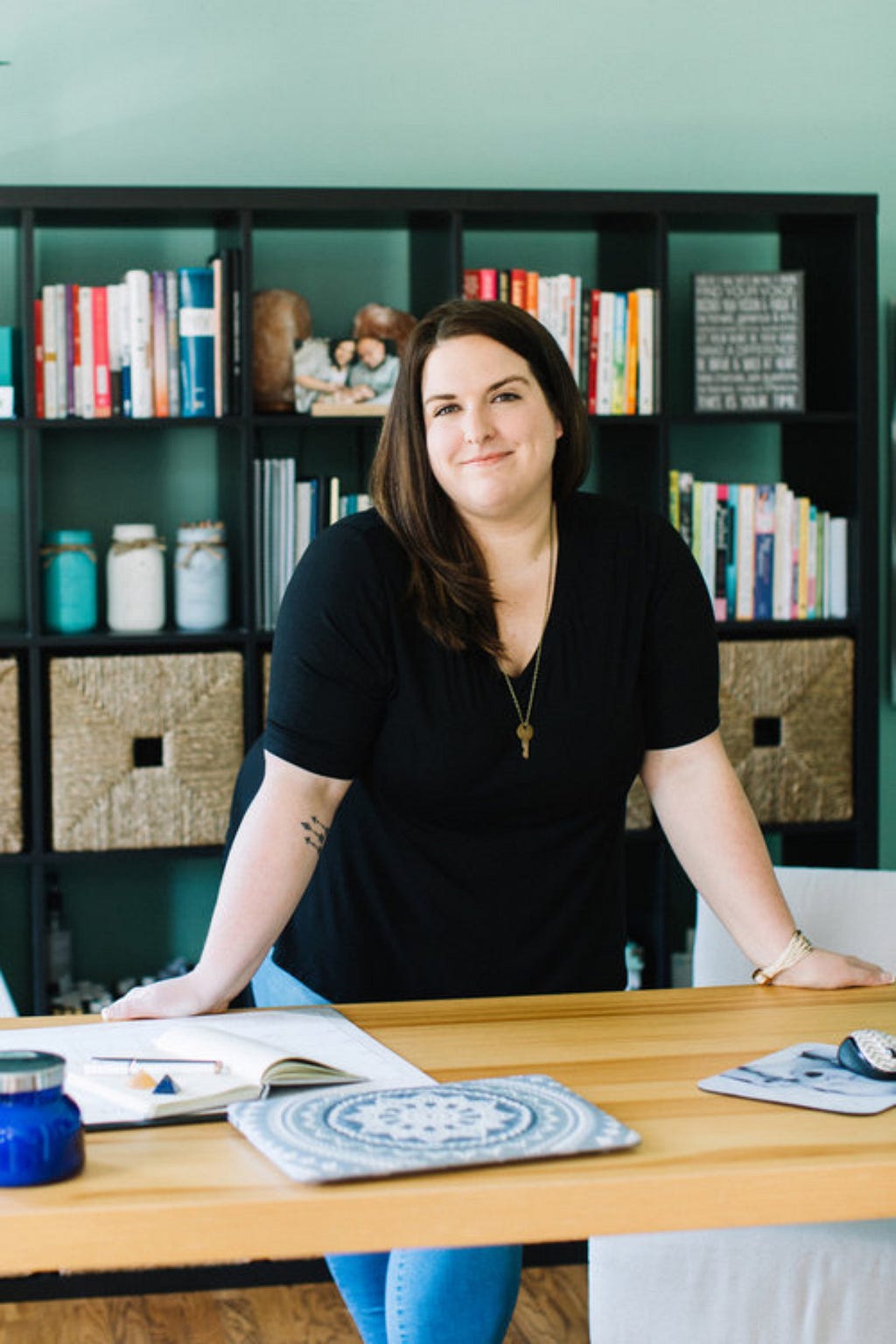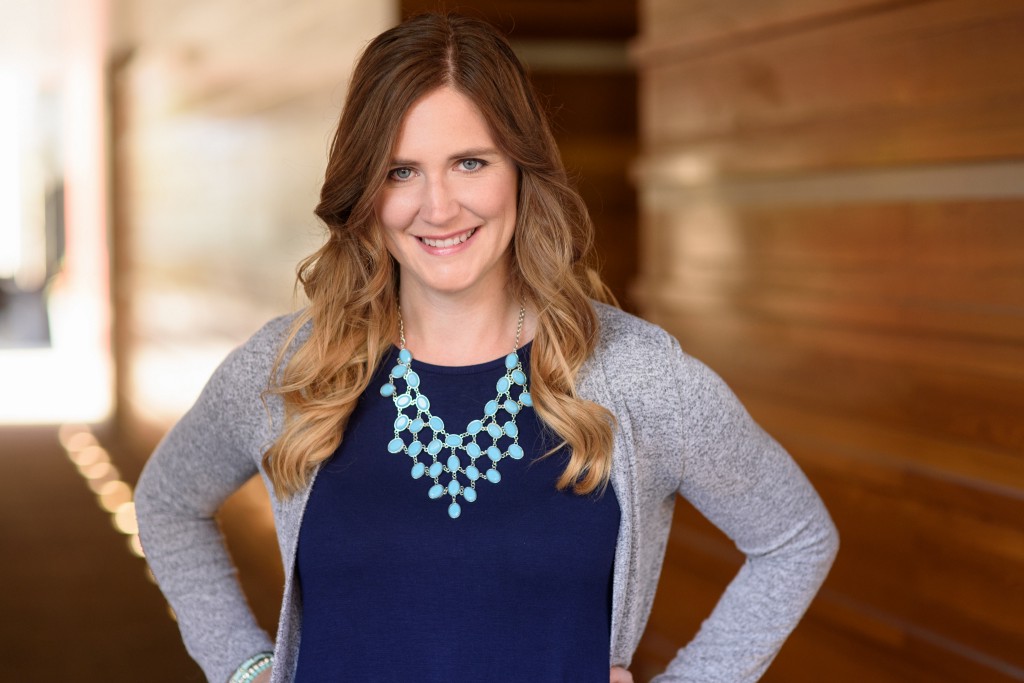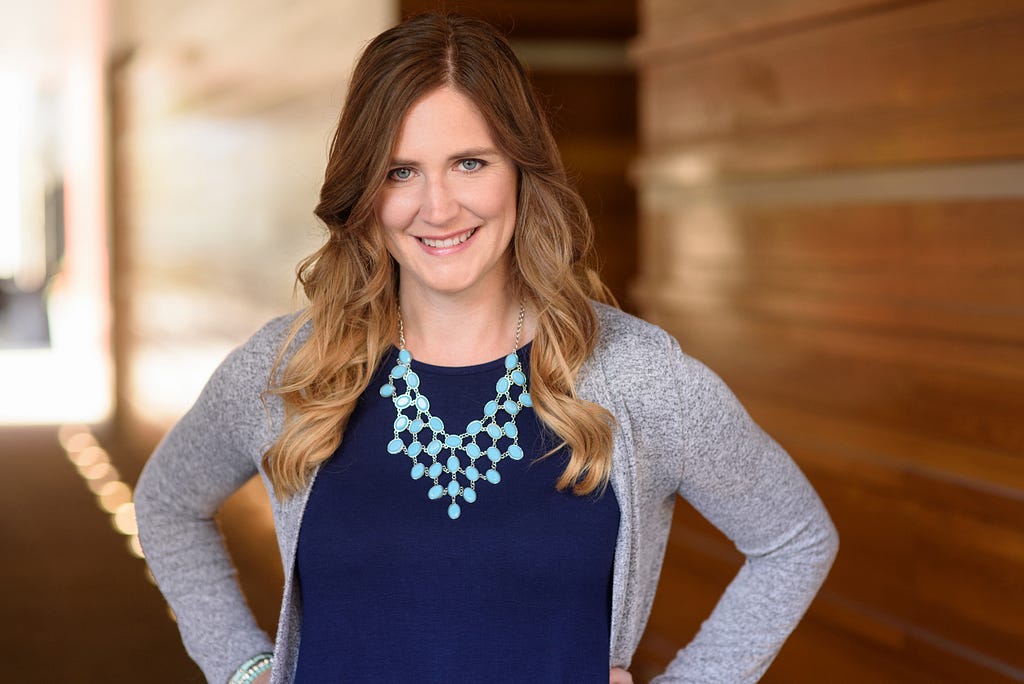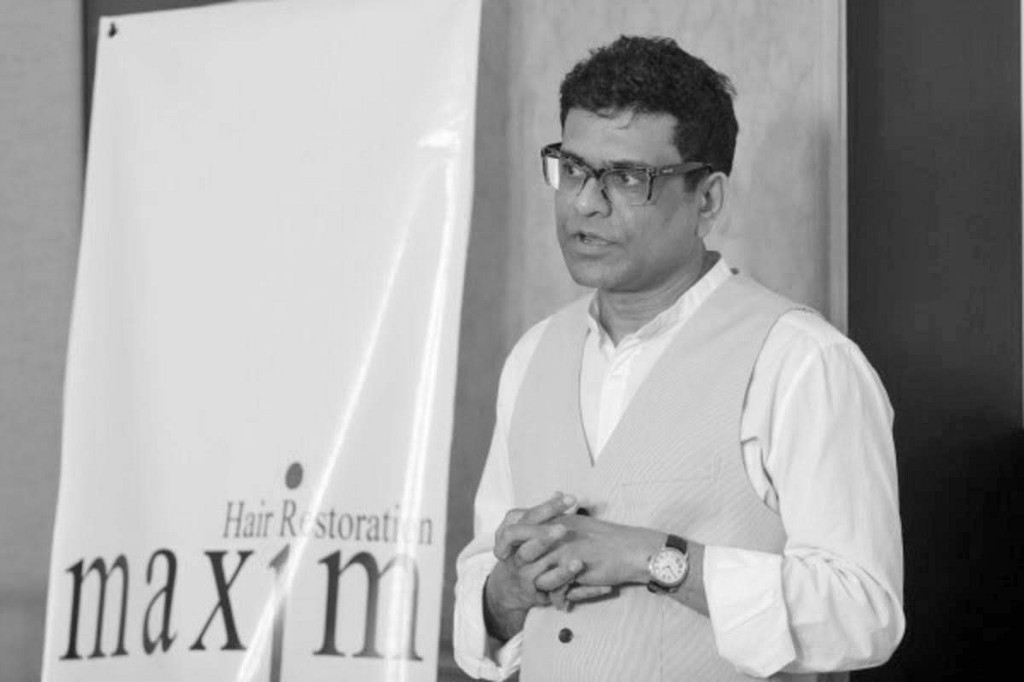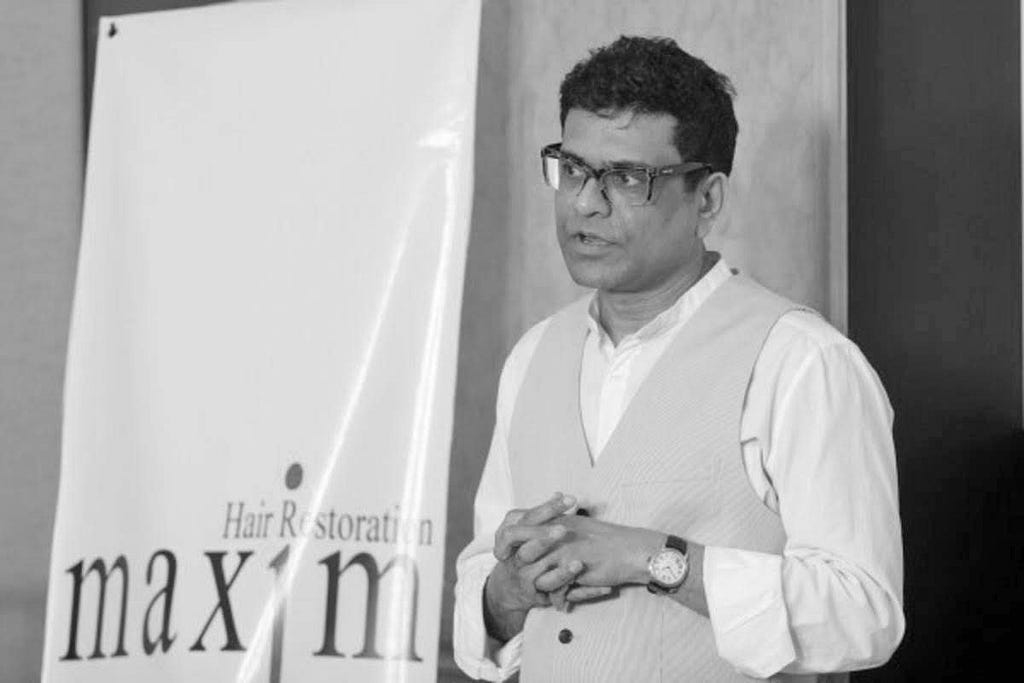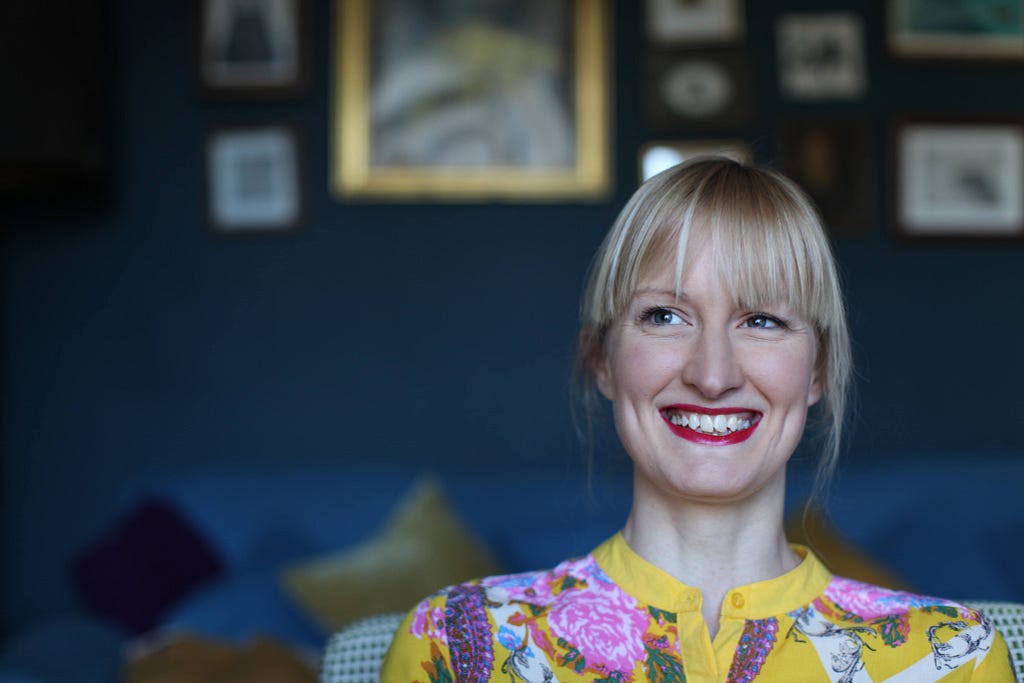
We live in a digital age where we are all connected and vulnerable to criticism, whilst constantly seeing entrepreneurs online, who appear to always be at the top of their game and a huge success.
It’s unrealistic to think that they don’t have bad days or self-doubt, yet people don’t always realize this.
When we are surrounded by (albeit false) perfection — it’s hard to feel worthy.
As a part of our series about how very accomplished leaders were able to succeed despite experiencing Imposter Syndrome, I had the pleasure of interviewing Amy Merrywest.
Amy is founder and director of two companies, one of which helps entrepreneurial mums create and implement their own PR plans. You can find out more here.
Amy has big agency PR experience as well as freelance and small boutique agency experience. She has worked on plenty of well-known brands and secured a great deal of national, glossy and TV coverage for her clients as well as helping others maintain their own public profiles.
Thank you so much for joining us! Our readers would love to “get to know you” a bit better. Can you tell us a bit about your ‘backstory’?
I am so pleased to be here, thanks for having me!
I started out my PR career in a small agency as a temp. I was tasked with pitching to the local press a story about the British Sub Aqua club.
This involved me calling journalists, all day, every day, and discussing the initiative. I can’t even begin to explain how hard it is to say “British Sub Aqua Club” over and over again! Needless to say — I soon became a pro on the phone!
From there I moved to a large PR firm in the city and took on some really great clients — I worked on many projects and became totally addicted to the buzz of getting great coverage — especially TV features.
This was a few years ago now and since then I have left the city and have a wonderful family. I now concentrate on helping entrepreneurial mums create and implement their own PR.
Can you share with us the most interesting story from your career? Can you tell us what lessons or ‘take aways’ you learned from that?
Naturally I enjoy getting a new piece of coverage — the bigger the better, and I love to see the benefit to my client that it can have.
There was a particular piece of coverage I had on a huge UK daytime TV program and it was a feature on a small eye cream from my client (a leading national supermarket).
If I’m honest, I got lucky because I had sent a press release to the producers not long before and I was in a position to courier over a sample of the product for them on the same day as filming. I was in the right place at the right time.
The eye cream was featured and overnight, pretty much all the stock in every branch across the UK sold out.
I took two things from that:
- Doing PR well does involve knowledge and practice (this is what I teach), but sometimes you get lucky and appear in the right inbox at the right time.
- One single piece of coverage can make a company, brand or product into a huge success.
What do you think makes your company stand out?
I have a naturally nurturing personality and this is thoroughly ingrained into my teaching.
I teach entrepreneurial mums how to create and implement their own PR plans for their brands.
The reason I focus on mums is because, as a mum myself, I get how tricky it is to juggle business and parenting — especially if you are working around school hours. I also understand how the internal narrative goes when you’re a mum and sometimes there is inner conflict — are they doing the right thing and can they really do it?
So for those reasons, I’d say that my company ethos is particularly nurturing and I don’t just focus on helping my ladies to make a success of their business, I teach them how to believe in themselves.
None of us are able to achieve success without some help along the way. Is there a particular person who you are grateful towards who helped get you to where you are? Can you share a story?
My family is always the driving force behind what I do and that goes without saying.
But I also have to say that I owe a lot of my success to Lisa Johnson (Lisa Johnson Coaching). When I started out, I had times when I felt like I couldn’t do it and I wanted to give up, but Lisa really helped me change my mindset.
She gave me the practical tools to build my business and she gave me confidence in my abilities.
Ok thank you for all that. Now let’s shift to the main focus of this interview. We would like to explore and flesh out the experience of Impostor Syndrome. How would you define Impostor Syndrome? What do people with Imposter Syndrome feel?
Imposter Syndrome is the feeling people have when they lack confidence in their own skill, worth and knowledge. They feel that they are trying to be someone they are not capable of being — that they are a fraud.
We live in a digital age where we are all connected and vulnerable to criticism, whilst constantly seeing entrepreneurs online, who appear to always be at the top of their game and a huge success.
It’s unrealistic to think that they don’t have bad days or self-doubt, yet people don’t always realize this.
When we are surrounded by (albeit false) perfection — it’s hard to feel worthy.
What are the downsides of Impostor Syndrome? How can it limit people?
I work with lots of ladies with Imposter Syndrome and it can be really limiting. They often feel that they just shouldn’t bother and they’d rather settle for a 9 to 5.
It tends to peak as they realise that their business is starting to take off — they are excited but scared to succeed. Almost as if their potential success will expose them.
How can the experience of Impostor Syndrome impact how one treats others?
I think if a person is experiencing Imposter Syndrome, they can behave in many different ways that might be out of character. They may feel envious of others’ success and feel that they need to sabotage their work or be unsupportive.
This could be the cause of much hatred and negativity on social media — it is well known that if a person is trolling, they are often projecting their own insecurities onto others.
We would love to hear your story about your experience with Impostor Syndrome. Would you be able to share that with us?
When I first started out in PR I felt insecure about my own abilities — it was a long time ago, I was very young and I looked even younger. I had a feeling that people would think I sounded like I didn’t know what I was talking about and I absolutely hated people hearing me on the phone to clients.
Did you ever shake the feeling off? If yes, what have you done to mitigate it or eliminate it?
I guess for me, I winged it for a while and hoped that it would go away but it wasn’t until I got promoted and then moved onto bigger and better things that I realised that I was good at what I do and that I had learnt a great deal.
People had faith in me and I looked after the PR for some huge clients and then went on to freelance work.
It is likely that feeling the way I did, back then, was an important step in my career because it now helps me to coach my ladies through their own experience of Imposter Syndrome, with empathy.
I am lucky enough to be teaching some amazing entrepreneurial mums and it feels great!
In your opinion, what are 5 steps that someone who is experiencing Impostor Syndrome can take to move forward despite feeling like an “Impostor”? Please share a story or an example for each.
Look at themselves through the eyes of a friend.
If a loved one was experiencing Imposter Syndrome, we know it is likely that they are looking at themselves in an unrealistic and negative way and naturally we would see the best in them and help them through it.
I would ask them to look after themselves in the same way that they would for a friend and realise that they are thinking too harshly.
We are all still learning.
I am often told by my clients that they do not feel knowledgeable enough to do their own PR. But I explain to them that nobody is expecting them to be the best at it all — I am not teaching them to be head of public relations for Alan Sugar, I’m just teaching them how to do their own PR.
Look at others more realistically.
If you take a look more closely at someone you are comparing yourself with, try and think about them and their life more realistically.
If they are on Facebook talking about the 6 figures they just made, do you think they would also share the story about the two failed businesses that had before their success? Probably not.
This does not mean that they are not successful because they are, but it just goes to show that they are human, just like you and I.
There will always be something that you know that someone else does not.
So you might not be an expert in Facebook advertising, but you know a thing or two about social media content. Don’t give yourself such a hard time for not knowing absolutely everything because you have plenty of knowledge that others might not.
Practice not giving a hoot.
Try practicing some mindfulness and CBT to help reframe your thoughts. It might mean that you are able to let go of your inhibitions a little and stop worrying so much about what you are doing. Try and enjoy the ride.
You are a person of great influence. If you could inspire a movement that would bring the most amount of good to the greatest amount of people, what would that be? You never know what your idea can trigger. 🙂
Educating our children in the skill of understanding and knowing their self-worth is so important. I’d make this part of the curriculum in every school.
We are blessed that some very prominent leaders read this column. Is there a person in the world, or in the US, with whom you would love to have a private breakfast or lunch, and why? He or she might just see this, especially if we tag them 🙂
Richard Branson, for sure. He always seems to handle everything so well, with such calm and kindness. Not to mention he’s pretty good at business!
How can our readers follow you on social media?
I’d love that. I am on https://www.facebook.com/AmyMerrywestConsulting/ and my PR group is www.facebook.com/groups/ThePrPowerhouse
This was very inspiring. Thank you so much for joining us!
Thanks for having me!
Publicist Amy Merrywest: “How I Was Able To Thrive Despite First Experiencing Impostor Syndrome” was originally published in Authority Magazine on Medium, where people are continuing the conversation by highlighting and responding to this story.


